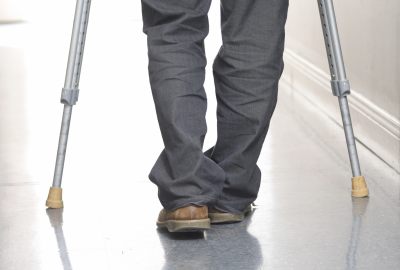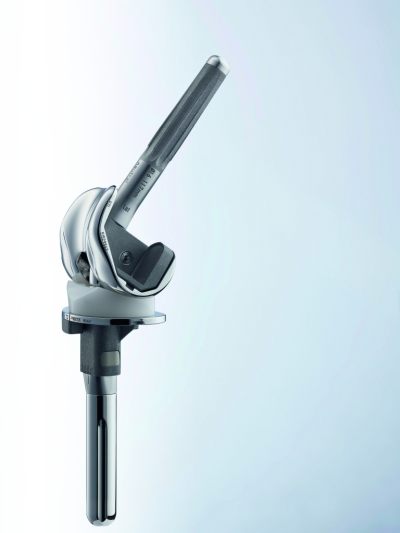


ORTHOPAEDIC SURGERIES
|
|
|
YOU CAN SAVE UP TO 80% OFF on your orthopaedic surgeries ( knee / hip replacement ), compared to your local clinical prices.
Hungarian hospitals work with state-of-the-art medical technologies and in addition there are
no waiting lists.
HOW TO PLAN YOUR TREATMENT...
It is so simple with us:
1. Contact your US local agent ( representative )
2. Book your treatment
3. Book your flight ( time period depends on what you intend to do - discuss the options with your local agent )
4. Consultation and treatment
5. Clinical stay with Rehabilitation ( 10 days ) - stich removal during extra rehabilitation
6. Extra Rehabilitation for 2 weeks: highly recommended, for maximum safety
7. Travelling back home
The following treatments are available:
1. Total HIP replacement with implant
2. Total KNEE replacement with implant
and also available ( upon request ):
3. Other orthopaedic surgeries
4. Health check-ups & screenings
|
HIP REPLACEMENT
The design of the implant offers you renewed stability and function. Hip replacement can relieve pain, help your hip joint work better, and restore normal walking and other movements.
Hip replacement surgery is performed over 300,000 times each year in the U.S. to repair severe hip damage. |
|
When are you in need of surgery?
If there is pain in the hip and lack of ability to move during everyday activities. These can damage the quality of life.
Surgery is proposed when other methods - resting, medication, physiotherapy - are not effective.
Before surgery, a total medical examination and x-ray image is required to clarify the reason that causes the problem, and to choose the right type of prosthesis.
The day after the surgery, the patient can get up and make his/her first steps with the help of walking aid ( eg. frame, elbow crutches ).
During the hospital treatment, a physiotherapist helps to learn important activities such as sitting up, getting up, walking on stairs, personal hygiene, usage of walking aids. The average stay in hospital is about 8-10 days.
Total recovery: 3 to 6 months is required. However, light physical activity can be done about 2 months after the operation.
After total recovery, there are no limitations in everyday activities, even light sport activities can be practised.
The prostheses can be used for 20 years in average. After this period, worn or loose parts can be replaced by another surgery.
Brands of prosthesis: Zimmer, Johnsson & Johnsson
Hip replacement surgery process
- Previous examinations to surgery will be carried out at the patient’s hometown
- Day 1: arrival to the hospital
- Day 1/2 : laboratory tests, fresh x-ray exposure will be performed. Thrombosis prophylaxis will be started
- Day 2/3: surgery ( duration of the operation is approx. 90 minutes ); intensive care unit observation in 24 hours after surgery
- 1 day after surgery the patient will be referred to the regular hospital department
- Rehabilitation program for the period of about 8 days, daily medical gymnastics and walking practice
- Removal of stitches on approx. the 10th day after surgery and discharge from hospital
-
A 2-weeks extra rehabilitation process in hospital or hospital walk-in ( this case staying in nearby 4* hotel ) is very recommended,
followed by a clinical check-up examination - 3 weeks after operation the patient is fit to travel
Your travel & treatment Your doctors Prices & costs
KNEE REPLACEMENT
|
Knee replacement surgery involves replacing all of the components
Of all possible surgical interventions, total knee replacement offers There are 2 main benefits to be gained from knee replacement surgery:
|
|
When are you in need of surgery?
If there is pain in the knee and lack of ability to move during everyday activities. These can damage the quality of life.
Surgery is proposed when other methods - resting, medication, physiotherapy - are not effective.
Before surgery, a total medical examination and x-ray image is required to clarify the reason that causes the problem, and to choose the right type of prosthesis.
The day after the surgery, the patient can get up and make his/her first steps with the help of walking aid ( eg. frame, elbow crutches ).
During the hospital treatment, a physiotherapist helps to learn important activities such as sitting up, getting up, walking on stairs, personal hygiene, usage of walking aids. The average stay in hospital is about 8-10 days.
Total recovery: 3 to 6 months is required. However, light physical activity can be done about 2 months after the operation.
After total recovery, there are no limitations in everyday activities, even light sport activities can be practised.
The prostheses can be used for 20 years in average. After this period, worn or loose parts can be replaced by another surgery.
Brands of prosthesis: Zimmer, Johnsson & Johnsson
Knee replacement surgery process
- Previous examinations to surgery will be carried out at the patient’s hometown
- Day 1: arrival to the hospital
- Day 1/2 : laboratory tests, fresh x-ray exposure will be performed. Thrombosis prophylaxis will be started
- Day 2/3: surgery ( duration of the operation is approx. 90 minutes ); intensive care unit observation in 24 hours after surgery
- 1 day after surgery the patient will be referred to the regular hospital department
- Rehabilitation program for the period of about 8 days, daily medical gymnastics and walking practice
- Removal of stitches on approx. the 10th day after surgery and discharge from hospital
-
A 2-weeks extra rehabilitation process in hospital or hospital walk-in ( this case staying in nearby 4* hotel ) is very recommended,
followed by a clinical check-up examination - 3 weeks after operation the patient is fit to travel
"The joy of health and beauty… and the World smiles with You"





